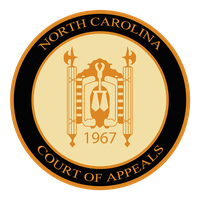
Landlord's Duty to Inspect Property in North Carolina
In a recent case decided by the Court of Appeals, the court addressed the duty of a landlord (renting residential property) to inspect his or her property.
In this case, the tenant rented a house from the landlord. There was a furnace and water heater in the crawlspace. The gas pipe from the meter to the furnace was highly corroded and rusted, apparently causing a leak of gas. An expert opined that the pipes had holes through which gas could escape. The corrosion was due to moisture leaking onto the pipe, and it would take about 7 years for this deterioration to occur. The landlord had last inspected this area at the time of the lease (12 years earlier), but he did not specifically look at these pipes. The tenant turned on a light, which apparently ignited gas in the room, causing an explosion and severe injuries to the tenant.
The tenant sued the landlord for his injuries. The lower court dismissed the case. The core issue on appeal was whether the landlord could be held liable (either on a theory of general negligence, or a violation of the Landlord-Tenant Act, or a violation of the building code (negligence per se)) when he argued that he did not know about the corrosion and that he had no duty to inspect the crawlspace. The issue was this, in essence, whether the landlord had a duty to inspect the crawlspace to identify this problem.
In a 2-1 decision, the North Carolina Court of Appeals ruled that the tenant's case can go forward, as there was sufficient evidence of the landlord's negligence, and the landlord's failure to take reasonable care by not inspecting this area, and these pipes, for 11-12 years.
This cases raise the core issue of the scope of the Landlord's duty to inspect his property. Under the Residential Landlord Tenant Act, the landlord must keep the premises fit and habitable, which includes being safe for use. The issue, however, is often whether the landlord had notice of the defective (dangerous) condition. In many cases, the landlord can say that he or she did not have actual notice of the defective condition. In these cases, the issue is whether the Landlord should have known of the defective condition.
Although the Act does not expressly impose a duty to inspect the property, the courts have found that such a duty exists (arising from the duty to maintain the property). The issue then becomes how much inspection is required. For example, how often must the landlord inspect the property? And is the landlord required to go into the crawlspace? Is the landlord required to inspect the chimney, roof, stove, electrical panel, etc?
This issue has largely been ignored by court decisions. The issue is a bit simpler for conditions that are readily ascertained, such as an icy condition on a sidewalk. And the issue is also a bit simpler in the context of a landlord with a general presence on the common areas, such as exists with most apartment complexes. But when a person rents out his or her house, often the landlord relies on the tenants to report problems as they arise. In this case, the dissenting Judge was of the opinion that the Landlord had no duty to inspect the crawlspace and the pipes, such that he should not be subject to liability.
As there was a dissent in this case, it is likely headed to the North Carolina Supreme Court.